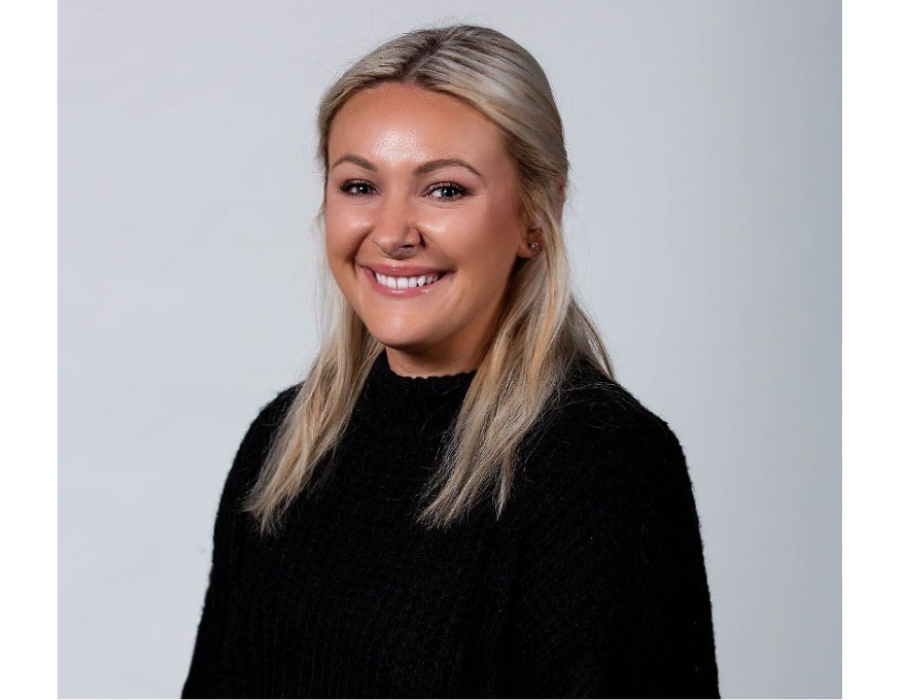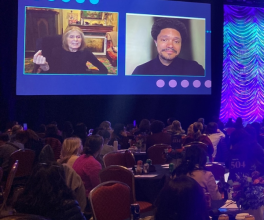
Looking to Break In? Some Advice from a 10-year Medtech Veteran
Lejla Sarajlic wanted to practice medicine. She was premed in college. That is, until a mentor shed light on how the clinical aspect of medicine has changed with administrative burdens, malpractice issues, and compensation that isn’t often commensurate with responsibilities. “It forced me to pause and reevaluate my career path,” she recalled. Sarajlic shared in a recent podcast how she shifted academic gears early on and got to her current role as a respiratory marketing director for Olympus. She wants to “pay it forward” with career advice both for the early trail blazers on their professional path, as well as for those seeking a new role, but lack the experience or network support to foster that change.
Major change: Nuclear medicine
After Sarajlic finished her premed coursework at St. Louis University, she declared her new major: nuclear medicine technology, holding undergraduate research positions for four years. Soon after graduation she applied for, was interviewed, and within weeks accepted a clinical support position for image guided surgical technology at a medtech startup. At the time, “I didn’t even know medical device was an industry,” she recalled.

Lejla Sarajlic, Director, Marketing Respiratory
On the go, wearing many hats
“I was traveling probably 80% of the time all over the country,” Sarajlic recalled of her clinical support position, which involved “living out of a suitcase” and sometimes getting a call from her manager at the airport on the way home, only to be told she was needed elsewhere. “Me, being a planner and a control freak, that was initially very difficult to get used to,” she recalled, but she came to own the role.
“I was starting new programs in hospitals, installing the equipment…I trained the staff, I [supported] initial procedures, all for research purposes at big academic institutions” running clinical trials, said Sarajlic. “We worked hand in hand with sales reps in the field,” on both the capital and disposable equipment side, she said.
Sarajlic clarified that a clinical support specialist isn’t a sales position, but it still supports sales. For someone with previous clinical experience wanting to enter medtech, “The clinical support team is a great place to start, because you become the clinical expert of the product,” she said. But more than that, “You learn about the industry … and you get a chance to see a little bit of what sales is about.” Or what else is right for you, she added. For Sarajlic, it was on to sales training.
Sales 101
“I smile still, because it’s my passion,” Sarajlic recalled. Not only did she revel in training external customer physicians and staff, but she thrived on internal training of sales reps. “As part of our training, I got to touch each and every sales rep in the organization and to develop a curriculum to help make sure they succeeded throughout their new hire training.”
For Sarajlic, “I love taking something difficult to understand, breaking it down, teaching it to someone and watching them apply it. And that’s what sales training was. I taught them something and I saw them apply it in a real situation and go on to hit their revenue number for the year.”
It also allowed her to broaden her sights on opportunities. “Sales training allowed me to have a hand in every sector of the business,” she said. “You’re building out a sales process, you’re involved in product launches, you’re in procedures, you work on KOL [key opinion leader] development, you go to conferences and take courses; you literally have a hand in everything, and from there it’s a really great opportunity for you to decide what the next step is.”
Sales training roles in medtech would typically require a background knowledge of the business. “That being said, there are training coordinator positions that essentially help the sales training manager with day to day [responsibilities], so someone wishing to take the next step may want to start there,” she advised.
Step into marketing, hand in hand with sales
Sarajlic is currently the respiratory marketing director at Olympus. Respiratory care is one of three business units that the company announced it would focus investments on to develop next-generation technologies, according to a December 2021 press release.
“Marketing and sales work hand in hand, every single day,” Sarajlic observed. “Without sales there would be no marketing.” To support sales, “I help set strategies that drive what sales does day in and day out,” she explained. “We have a revenue number that is our target for the year for sales to meet. It’s marketing’s responsibility to help sales make sure they not only hit their number but surpass it through organic growth.” As part of those efforts, “Every single day I touch base with sales reps [and] regional VPs, to ensure that we remain in communication and collaborate towards the same goal.”
Advice for taking ‘the next step’
“The Medical Sales Podcast: How To Become A Lung Cancer Clinical Specialist With Lejla Sarajlic” may home in on the beginning of Sarajlic’s career, but these professional qualities span titles and professions in the medical device industry:
- Flexibility— “Your day to day will change, and you have to be OK with that,” she said of her clinical support position. “I still have amazing mentors all over the country [from] that role.”
- Communication skills— “You have to be a good communicator. A big part of the clinical support role is education and training, and if you’re not able to explain a product effectively to a customer, from beginning to end, then the role may not be for you. It’s about taking a difficult concept and breaking it down in your own language and being able to disseminate that information to your audience.”
- Discomfort with comfort— “Being comfortable with being uncomfortable [is] not a trade or a talent. It’s something you learn as you grow. It’s something I learned in my [current] marketing position.” Having previously held a sales training role for six years, “I got … comfortable doing what I was doing. I was really good at it,” she said, acknowledging that of any role that is held over time: “It’s difficult to transfer out of your comfort zone.”
- Goals in sight— “Always have goals in front of you: attainable goals, and a timeline, and refer to them on a regular basis,” Sarajlic advised. “It’s the only way you’ll climb within this industry.”
- Build your brand—"Once you land your job, build your brand and build it early,” she said. “Make sure people know who you are. Ask questions, have your camera on during calls. That’s the only way you will get noticed,” she said. “When opportunity presents itself for a promotion, you’re going to be the first person who comes to mind.”
Ready to listen?
The website hosting the podcast The Medical Sales Podcast: How To Become A Lung Cancer Clinical Specialist With Lejla Sarajlic (libsyn.com) is a copyright of Evolve Your Success©.





